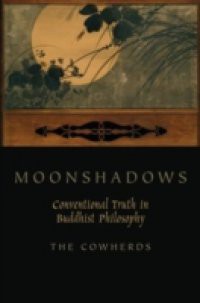The doctrine of the two truths--a conventional truth and an ultimate truth--is central to Buddhist metaphysics and epistemology. The two truths (or two realities), the distinction between them, and the relation between them is understood variously in different Buddhist schools and is of special importance to the Madhyamaka school. The fundamental ideas are articulated with particular force by Nagarjuna (2nd--3rd century CE) who famously claims that the two truths are identical to one another, and yet distinct. One of the most influential interpretations of Nagarjunas difficult doctrine derives from the commentary of Candrakirti (6th century CE). While much attention has been devoted to explaining the nature of the ultimate truth in view of its special soteriological role, less has been paid to understanding the nature of conventional truth, which is often described as deceptive, illusion, or truth for fools. But conventional truth is nonetheless truth. This book therefore asks, what is true about conventional truth? and What are the implications of an understanding of conventional truth for our lives?

